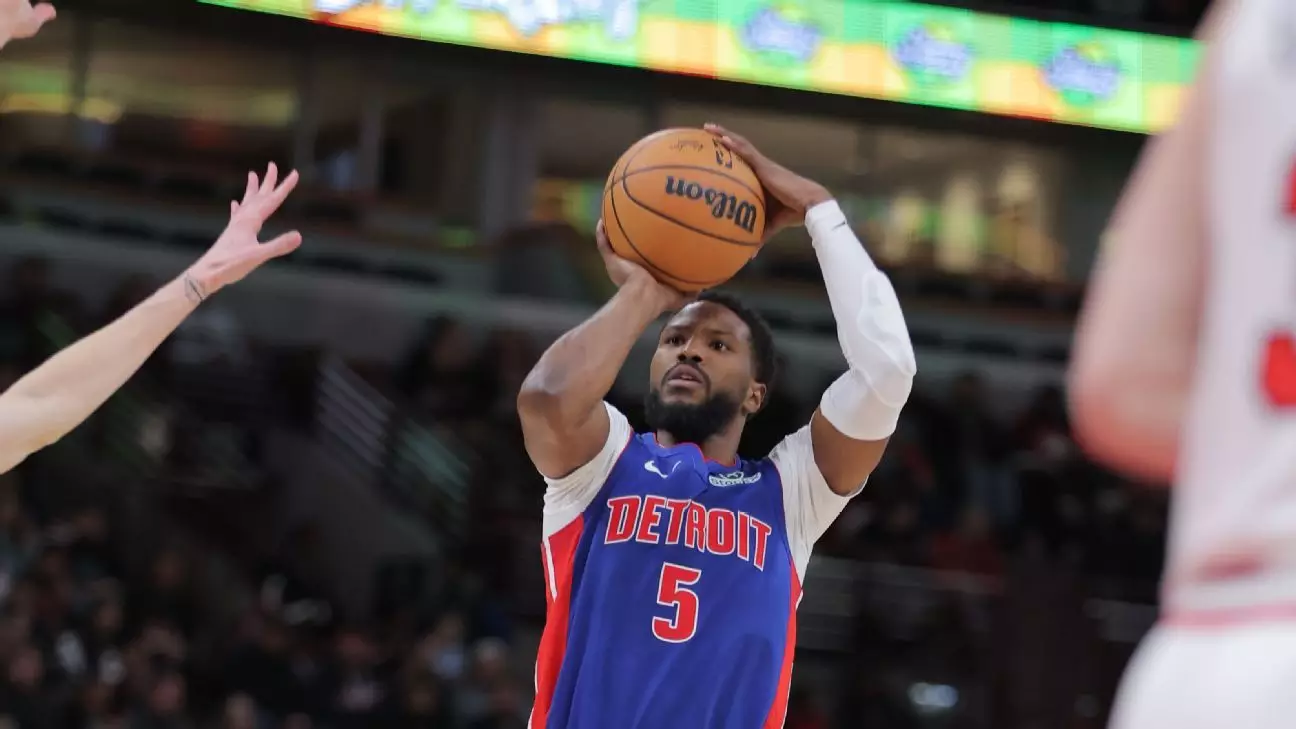The recent federal probe into Malik Beasley’s alleged involvement in gambling related to NBA games is far more than just another headline in the ongoing saga of sports betting and professional athletes. This investigation casts a harsh spotlight on the persistent, and somewhat ignored, vulnerabilities existing within the NBA’s relationship with gambling—a relationship many hoped would be responsibly managed but that appears riddled with peril. Beasley, a 28-year-old veteran scorer now with the Detroit Pistons, is not accused of wrongdoing lightly. Federal authorities are scrutinizing unusual betting patterns on his statistics, specifically during his stint with the Milwaukee Bucks in the 2023-24 season. The timing and nature of these irregular wagers raise legitimate questions about integrity that transcend any single player and point to systemic cracks in the NBA’s oversight.
The Dangerous Intersection of Professional Sports and High-Stakes Gambling
The allegations stem primarily from betting anomalies centered around Beasley’s rebounds in a Bucks vs. Trail Blazers game last January, where bookmakers observed dramatic shifts in odds that didn’t just raise eyebrows but triggered alarms. The rapid movement of odds from moderate to heavily favored on the “under 2.5 rebounds” bet, followed by Beasley significantly exceeding that figure, is emblematic of unethical betting activity that federal authorities take seriously. While Beasley’s attorney rightly reminds everyone of the presumption of innocence, the realities of professional sports demand higher standards. An athlete’s lien on public trust is sacred; suspicion alone can taint reputations, careers, and the integrity of the sport.
Moreover, Beasley’s case isn’t an isolated incident. It resides within a troubling pattern of NBA players connected to betting investigations, such as former Raptors forward Jontay Porter’s scandal over confidential disclosures to bettors and Miami Heat guard Terry Rozier’s ongoing federal probe. These episodes expose the NBA’s failure to erect sufficient preventative barriers against gambling’s corruptive potential. The league has adopted a defensive posture, emphasizing cooperation with federal prosecutors but offering little reassurance that structural reforms are forthcoming.
A Fragile Talent with Troubled History
Beasley’s background complicates public perception. His previous felony plea for threats of violence, leading to a 12-game NBA suspension in 2021, already cast shadows on his character. Now, he stands at a precarious junction where his on-court accomplishments—including breaking the Pistons’ single-season 3-point record and averaging over 16 points last year—risk being overshadowed by allegations that could derail his career yet again. His trajectory, marked by several team changes and undeniable talent intertwined with off-court issues, mirrors the archetype of gifted athletes caught in cycles of controversy exacerbated by professional and personal pressures.
The stalling of his anticipated three-year, $42 million contract talks with Detroit hints at the tangible consequences of such investigations, demonstrating that the NBA’s decisions aren’t solely rooted in legal outcomes but also in the broader calculations of image and risk management.
A Call for Robust Reform and Enhanced Player Support
The Beasley matter urgently demands a more proactive, transparent strategy from the NBA and its stakeholders. In the era where legalized sports gambling permeates virtually every major market in the United States, mere investigations and reactive measures are insufficient. There is a pressing need for stringent monitoring systems, comprehensive education for players about the dangers of gambling entanglements, and a clear, consistent punitive framework that deters potential future infractions.
However, beyond the disciplinary angle, this scandal should serve as a catalyst for scrutinizing the psychological and financial pressures athletes face that can leave them vulnerable to illicit activities. The NBA must invest more heavily in mental health resources and advisory support, fostering environments where players can seek help without stigma or fear.
Beyond the Headlines: A Larger NBA Credibility Crisis
While Malik Beasley remains legally innocent until proven otherwise, the cascading investigations into multiple NBA players connected to suspicious betting patterns inflict growing harm on the league’s credibility. Fans and bettors alike are forced to confront the uncomfortable possibility that games and player stats can be manipulated, undermining the very foundation of fair competition that professional sports are built on.
The NBA sits at a crossroads: continue its current path, risking further erosion of trust, or embrace meaningful reforms that acknowledge gambling’s omnipresence and strive to protect the sport from corruption. Ignoring these warning signs invites not only legal repercussions but also lasting damage to the NBA’s brand as a premier basketball league.
Malik Beasley’s alleged involvement should not be dismissed as an isolated lapse but rather understood as a symptom of deeper systemic vulnerabilities demanding urgent attention and honest reckoning.


Leave a Reply